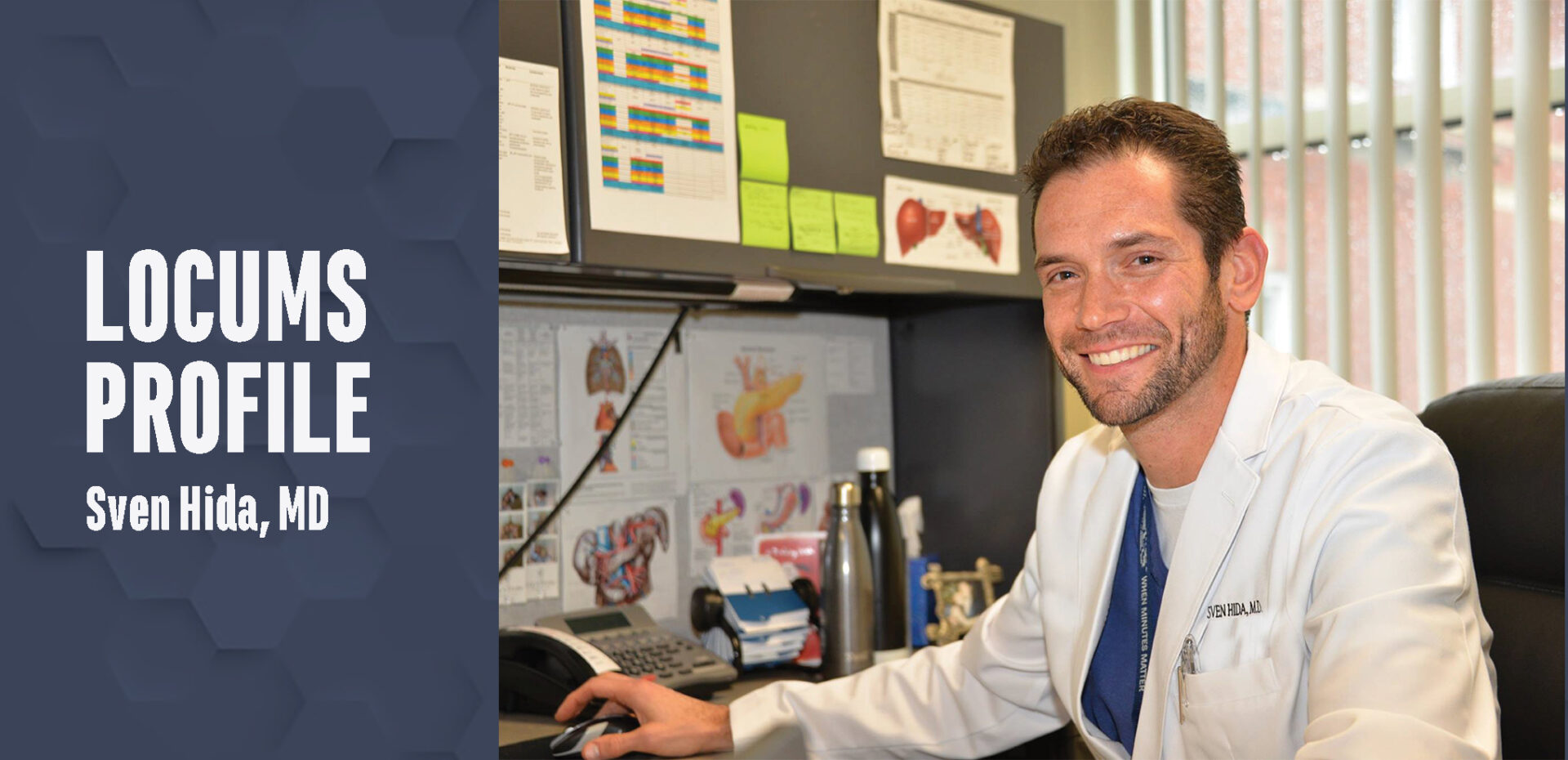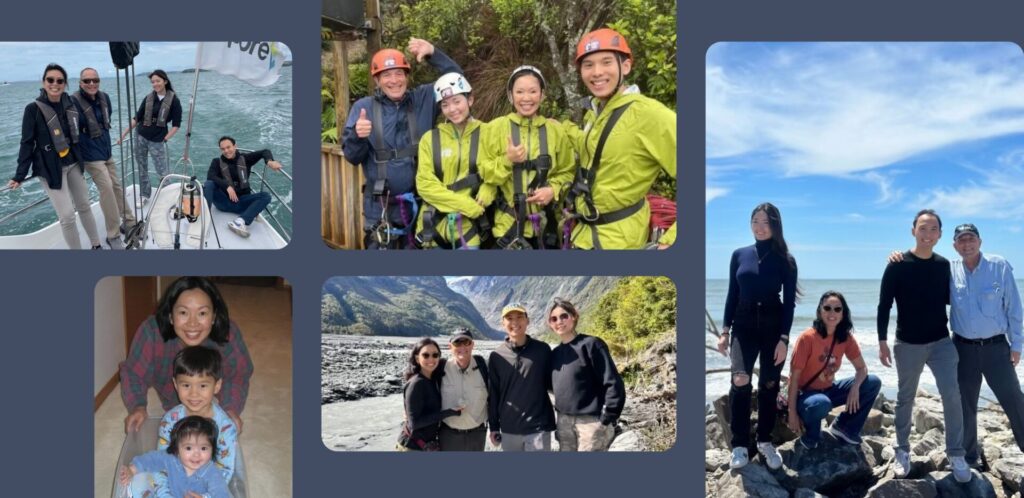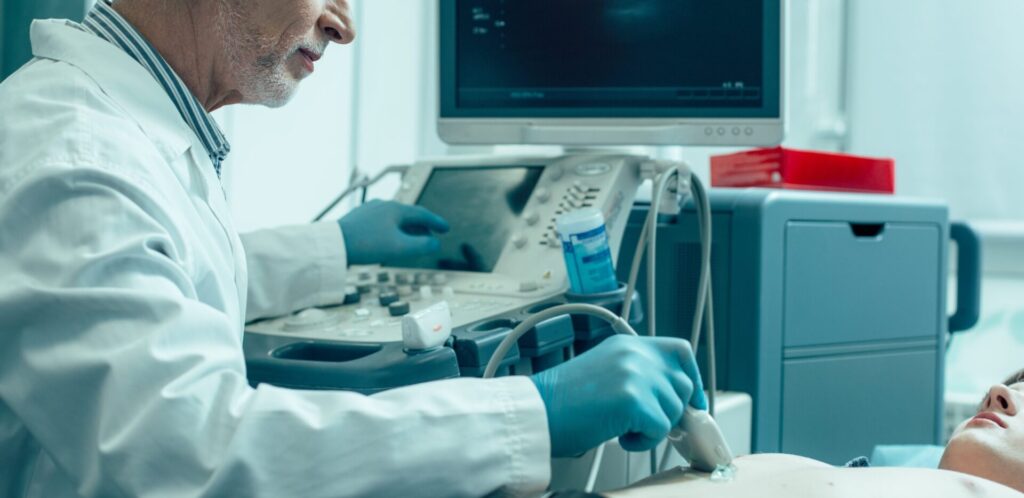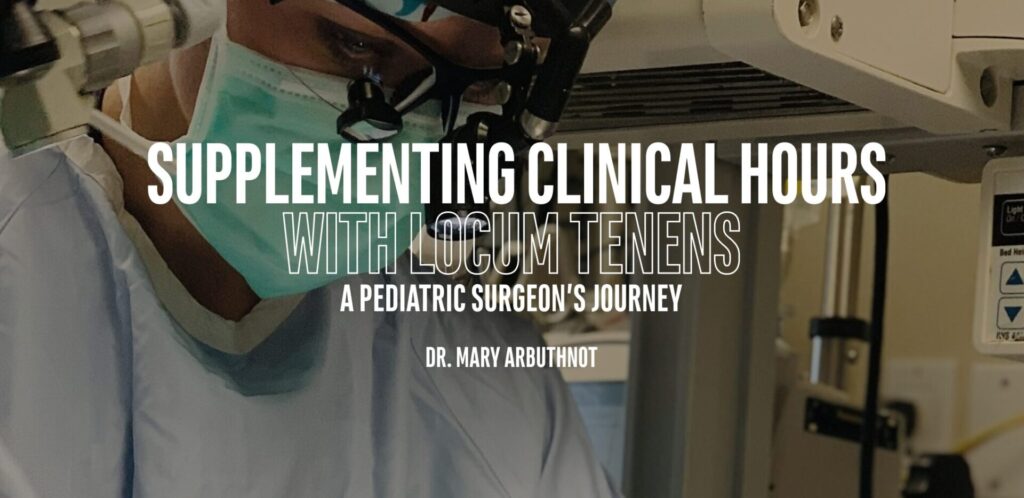Sven Hida, MD has spent a significant part of his medical career working in a locums capacity. His experience as a locums provider validates how critical the role is to patient care.
Patients rely on their physicians to make life-saving decisions. During his time as a locum tenens physician, Sven Hida, MD spearheaded complicated procedures for patients whose lives were forever changed.
The adage that the doctor-patient relationship is sacrosanct rings true for Dr. Hida, who treats both adults as well as pediatric patients for a full range of GI diseases and disorders. Hida, who believes in pushing the envelope and advancing his field with minimally invasive advanced endoscopic procedures, is currently a full-time Advanced Endoscopy Specialist in Little Rock, Arkansas. Prior to taking that role in 2019, he worked locums at a medical center in Albany, New York before accepting a staff position as the Director of Endoscopy.
Choosing the Locums Path
Hida’s career journey led him to locums for several reasons. To start, his first position out of medical school post fellowship was not challenging enough. “The medical group was not doing very many advanced procedures,” says Dr. Sven Hida. By the time Hida was discussing temporary jobs with Hayes Locums, he was already dead set on leaving his full-time position, although he wasn’t certain if locums was the answer. “I detailed out what his options were so we could continually plan and strategize, as locums was the path he was going to take,” says Ryan Scharer, COO of Hayes Locums, who has worked with Dr. Sven Hida. The critical take away, according to Scharer, is continuous communication and planning between the physician and the locums consultant.
“My first locums position was in Michigan. It was long-term for a year-and-a-half. I grew while I was there because I took on more advanced procedures,” remarks Hida. He never relocated during his two weeks on, one week off schedule, which afforded him the ability to keep a work-life balance at his residence in New York.
Hida’s locum tenens work offered opportunities for continued learning, the ability to confer with colleagues, perform advanced procedures, and a chance to fine-tune his specialized skill set that many GI’s do not necessarily have, including POEM (Peroral Endoscopic Myotomy) procedures.
Additionally, his patient-centric practice style carried through to his locums assignments. “Locums opportunities are for physicians seeking alternatives,” says Hida. “Locums was very good for me. I showed colleagues what I trained for in Fellowship, and, I was able to help a lot of people,” he says.
Patient-First Philosophy
Paying attention to both the big picture and the smaller details of a patient’s life and health has been his constant. When he left his position in Albany, his patients followed him. “They would say, ‘I don’t care where you are. I am going to come to have my procedure done by you.’ It was a common occurrence,” says Hida, “Even for patients who were three hours away.” He humbly explains that it is difficult to find providers with his skills, including interventional endoscopy with a minimally invasive focus. “In the state of Arkansas there are three other specialists who do what I do; in Manhattan, about five,” says Hida.
“Hida’s locum tenens work offered opportunities for continued learning, the ability to confer with colleagues, perform advanced procedures, and a chance to fine-tune his specialized skill set.”
Making a Difference
Barely 10 years out of his training — residency and fellowship at NYU-Winthrop Hospital for Internal Medicine, Geriatrics and Gastroenterology — Hida is open about sharing why locum tenens was right for him and relates patient stories that reflect his doctor-patient relationship philosophy.
While working in Albany, Dr. Sven Hida says he was able to expand on ESD and EMR procedures and started doing POEM procedures more. “POEM had never been done at the Albany medical center,” says Hida. Beyond POEM, he performed a procedure on an adolescent that was a first of its kind, handled complications from surgery, along with other complex health issues that called for Hida’s experience. “I was willing to take on patients who were very much in need of a positive outcome,” he says. For instance, Hida helped a patient who was suffering following gastric bypass surgery. She developed achalasia with closure of the sphincter and could not eat. “She had lost so much weight. She was down to 90-something pounds and looked like a skeleton,” Hida recalls. The patient had tried a lot of things, but nothing was working. Hida stepped in and performed a Heller Myotomy. “She gained 46 pounds. Her entire life has been given back to her,” he says.
Hida fixed reflux problems for another patient with scleroderma that affected most of her body. “Her pylorus was tightly closed, and she had really bad esophageal reflux. Even though she said she had tried maximum therapy for the pain, nothing was working,” says Hida. He did a POEM and a TIF (Transoral Incisionless Fundoplication) procedure, which was new to the Albany facility. “It worked well,” he says. “We fixed her reflux problems, and she never had another issue with abdominal pain and vomiting after that.”
Perhaps it was the outcome for a 14-year-old that truly captures how patient care and making a difference matter. The patient had severe mitochondrial disease since he was seven. He couldn’t walk and was wheelchair bound with pain in his pelvis. He had been taking nonsteroidal anti-inflammatory drugs that caused ulcerations in the stomach that closed the opening to his stomach, Hida explains. Because of the ulcers, there were scars. “He had a feeding tube in his small intestine, and the position of the surgeons was, ‘We can help you but only when you gain enough weight to have reserves.’ But because he could only eat what the tubes were giving him, he would never gain the weight needed for the surgeons to move forward,” says Hida.
The young patient was not expected to live very long. “I suggested we do a pyloromyotomy (POP) procedure, but it had never been done on a child anywhere in the world. Despite being a high-risk procedure, the patient and his family agreed. All the teenager wanted to know was if he would be able to eat French fries once it was done. I told him I was pretty sure he could,” says Hida. The 14-year-old went home two days after the procedure. “He ate more in those couple of days than he had eaten in a whole week, including muffins and French fries. It was a very good success story for him, much better than ever expected. He is 19 years old now.”
“I was willing to take on patients who were very much in need of a positive outcome.”
All In
Hida wants to do everything he can for his patients under one roof. His hope is that his take on patient care is shared: “Everyone has to be vested in the patient-first philosophy. Everyone must be doing what’s right to benefit the patient,” he says.
As for his locum tenens journey: “I am happy I was able to provide these patients with a positive experience and show them that life is valuable and worth living,” says Hida. “What I have always sought to do in medicine is to help people.”



